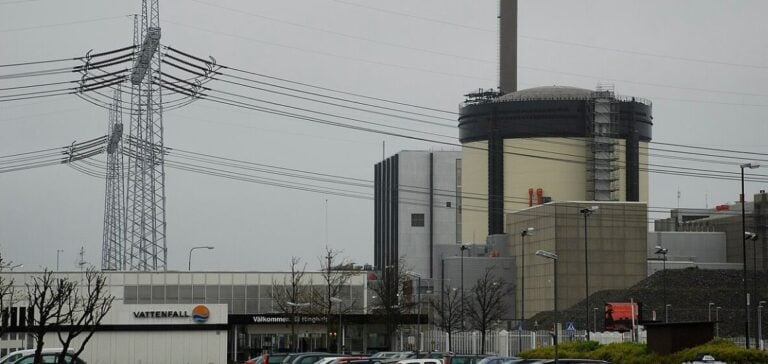Swedish energy group Vattenfall recently announced that it had shortlisted two companies, Rolls-Royce SMR (UK) and GE Hitachi Nuclear Energy (USA), to build small modular reactors (SMRs) at the Ringhals nuclear power plant in southwest Sweden. This decision marks a crucial step in Sweden’s ambitious plan to strengthen its nuclear power generation capacity, a key element in its decarbonization strategy. Indeed, many Swedish companies are investing in green energies and decarbonization.
In November 2023, the Swedish government stated its intention to massively produce nuclear power to meet the growing demand for electricity while reducing carbon emissions. This initiative is part of a broader energy policy to guarantee energy security and support the transition to a greener economy.
An ambitious schedule for new reactors
According to Desirée Comstedt, Head of Nuclear Energy at Vattenfall, the next steps will be to analyze in detail the proposals from Rolls-Royce SMR and GE Hitachi, before defining a precise timetable for the construction of these new reactors on the Värö peninsula. The area is planned to accommodate between three and five SMR reactors, underlining the scale of the project.
In addition to small modular reactors, Vattenfall is also continuing to explore the possibility of building conventional nuclear reactors at Ringhals. For this project, the Group is considering potential collaborations with companies such as France’s EDF, South Korea’s KHNP and the USA’s Westinghouse, illustrating a diverse and inclusive approach to partner selection.
The advantages of small modular reactors
SMRs, or small modular reactors, represent a major innovation in nuclear energy. Unlike conventional reactors, SMRs are much smaller and relatively straightforward to build, enabling them to be mass-produced in factories before being transported to the operating site. This modularity and flexibility offer significant advantages in terms of cost and construction time.
Sweden currently operates six nuclear reactors in three power plants, commissioned between 1975 and 1985. The modernization and expansion of this nuclear capacity is essential to meet the country’s future energy requirements.
Future prospects and challenges
Vattenfall’s ambition to have the first SMR operational by the first half of the 2030s underlines Sweden’s determination to play a leading role in nuclear innovation. This project is part of a long-term vision to ensure sustainable and secure energy production.
The adoption of this technology could also position Sweden as a model for other countries seeking to develop low-carbon energy solutions. International collaborations with renowned companies testify to the importance of strategic partnerships in achieving these ambitious goals.
This project not only meets Sweden’s immediate energy needs, but also paves the way for a massive future expansion of nuclear capacity, in line with the decarbonization targets set for 2045. The ongoing energy transition not only offers promising economic prospects, but also strengthens Sweden’s position on the international stage as a leader in clean, innovative energy.






















